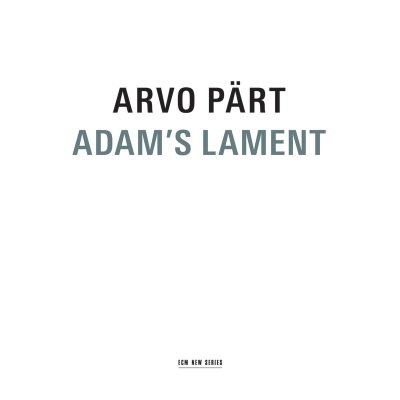
Arvo Pärt: Adam's Lament
Marshalling orchestral and choral forces under the direction of Tonu Kaljuste, this new Arvo Pärt album, produced by Manfred Eicher and realized, like all Pärt’s ECM discs, with the composer’s participation, is a major event. Sacred music predominates, by turns monumentally powerful and tenderly fragile. Adam’s Lament is the main work, but all eight pieces are either premiere recordings or first recordings of new versions reworked by the composer. The other compositions are: Beatus Petronius for two choirs, eight woodwind instruments, tubular bells and strings; Salve Regina for choir, celesta and string orchestra; Statuit ei Dominus for two choirs, woodwinds and strings; Alleluia-Tropus for choir and string orchestra; L'Abbé Agathon for soprano, baritone, female choir and string orchestra. The album concludes with two beautiful lullabies – Estonian Lullaby and Christmas Lullaby – for female choir and string orchestra. The title piece (commissioned by the cultural capital cities Istanbul and Tallin in 2010 and 2011) uses a poetic text by Silouan of Athos to emphasize our common heritage in the figure of Adam. When setting Adam’s Lament which, for Pärt, has great poetic, expressive power with its central message of love and humility, the composer internalised Silouan’s words completely; they determined the substance and structure of the text (sung in ecclesial Slavic), its punctuation, number of syllables and accentuation of the music down to the smallest detail. “That perfect melding caused me somehow to think less of a work of art when I was composing.” Tonu Kaluste is one of the outstanding interpreters of his countryman’s music. No other conductor has his gift for allowing Pärt’s works to breathe so freely in the choirs and orchestras he leads. He has already recorded many of Pärt’s pieces for ECM with the two ensembles he founded, the Estonian Philharmonic Chamber Choir and the Tallinn Chamber Orchestra. Other important interpreters of Pärt here include the Riga Sinfonietta, the Latvian Radio Choir, and Vox Clamantis, with its wide repertoire, from medieval to modern.
